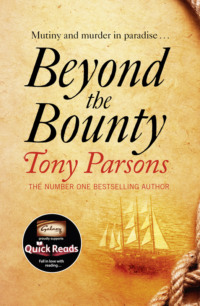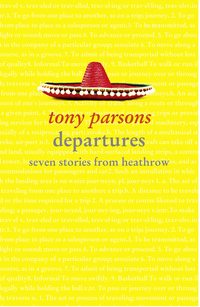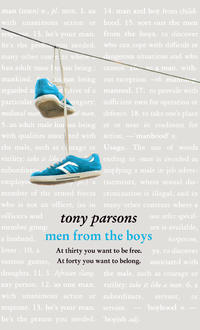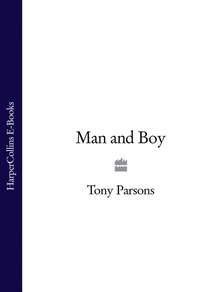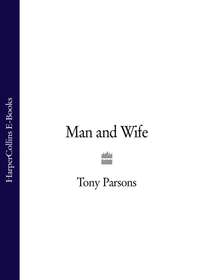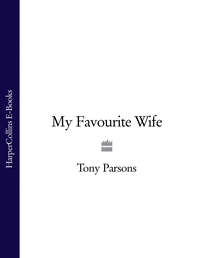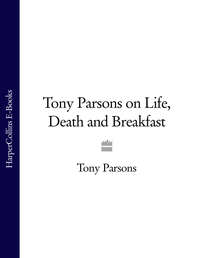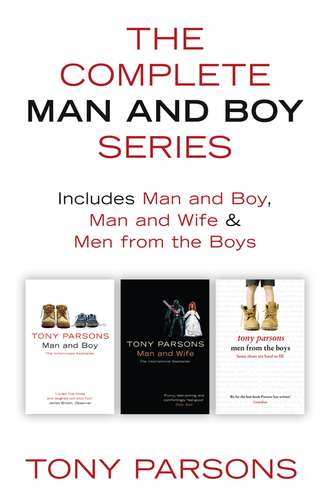
Полная версия
The Complete Man and Boy Trilogy: Man and Boy, Man and Wife, Men From the Boys
‘Just getting old,’ he said. ‘Too old for a jog in the woods.’
And I thought that’s exactly what it was – old age catching up on a man whose body had endured so much in his youth. All my life those small pieces of shrapnel, jagged and black, had been squeezing out of his tough old body. Every summer we saw that giant starburst of a scar on his side. All that pain and punishment was bound to catch up on him sooner or later.
But I was wrong. It wasn’t the past calling. It was the future.
‘Don’t worry about me,’ my father told us. ‘I’m fine. Let’s go home.’
We walked back to his car through the lengthening shadows of that September afternoon, Pat riding his bike ahead of us, my old man humming, ‘You Make Me Feel So Young’, consoled and comforted by his personal Dean Martin, his own private Sinatra.
Twenty
When you are deep into a relationship that you expect to last forever, it never crosses your mind that one day you will be taking your third shower of the day and getting ready to go out on a date.
Like getting your mum to do your washing or having to borrow money from your dad, you think that all those nervy bathroom rituals are way behind you.
You never dream that there will again come a time when you are as fanatical about your personal hygiene as a fifteen-year-old with a permanent erection. That you will once more find yourself standing in front of the mirror trying to do something with your hair. That you will be brushing teeth that are already perfectly clean. And that you will do all these things so you can sit in the dark for a couple of hours with a member of the opposite sex who you have only just met.
It’s scary. Dating is a young person’s game. You get out of practice. You might not be any good at it any more.
You use a different part of your brain for going out with someone you have just met than you use for going out with someone you are married to. You use different muscles. So perhaps it’s only natural that when you start using those muscles again, they can feel a little stiff.
Two grown-ups going through all those teenage mating rituals – trying to look nice, meeting at the arranged hour, knowing what it is time to do and what should wait a while and what should wait forever. It should be really difficult to get back into all that stuff after you have been with someone for years. But it didn’t feel difficult with Cyd.
She made it feel easy.
‘The first film we see together is really important,’ Cyd said. ‘I know we’re just friends and all, but our choice of movie tonight is really important.’
I tried to look as though I knew what she was talking about.
‘A lot of people on a first date, they try to play safe. They go for a big summer movie. You know, one of those films where New York gets destroyed by aliens or a tidal wave or a big monkey or something. They think that kind of movie guarantees a good time. But a big summer movie is not a good choice.’
‘It isn’t?’
She shook her head. ‘Nobody really has a good time at those movies apart from thirteen-year-old kids in Idaho. It’s the law of diminishing returns. When you’ve seen the Empire State Building blown up once, you don’t need to see it again.’
I was starting to get it. ‘You think the earth is going to move. But you end up yawning as the aliens zap the White House.’
‘If you choose a big summer movie, it shows you have really low expectations,’ she said, shooting me a look as I squeezed the MGF through the afternoon traffic clogging up around the Angel. ‘About everything. It means you think life is essentially just a bucket of stale popcorn and a carton of flat Diet Coke. And that’s the most that anyone can hope for.’
I tried to remember the first film I had seen with Gina. It had been something arty and Japanese at the Barbican. It was about depressed people.
‘Art-house movies are just as bad,’ Cyd said, reading my mind. ‘It means you are both pretending to be something that you’re probably not.’
‘And think of all those couples around the world whose first film was Titanic,’ I said. ‘All those budding relationships doomed before they had even really begun. Before they had even left port.’
She gave me a punch on the arm. ‘This is serious,’ she said. ‘I had a friend back home who got married to a guy who took her to see The Fly on their first date.’
‘And later he turned into a bug?’
‘As good as,’ she said. ‘He certainly changed. For the worse.’
‘So what do you want to see?’ I asked her.
‘Trust me?’ she said.
‘I trust you,’ I said.
She wanted to see one of those films that they put on television every Christmas. One of those films that I somehow imagined I had already seen a dozen times. But I don’t think I had ever really seen it at all.
I don’t know why they were showing It’s A Wonderful Life down at the NFT on the South Bank. It might have been a Frank Capra season or a James Stewart season. They might have had a restored, digitally-enhanced, freshly polished print. I don’t know and it doesn’t matter. That was the movie we went to see on our first night together. And at first it seemed like pretty grim stuff.
The special effects were from the steam age. Up in a starry sky that was clearly just a painted sheet of cardboard with a torch behind it, some angels – or rather, heavenly beings represented by pinpricks in the cardboard – were discussing George Bailey, pillar of his community, and his date with destiny.
As the action switched to a small American town and their merry little Christmas, I found myself yearning for aliens or a tidal wave or a big monkey to come along and destroy the lot. If Cyd’s theory about the omens of your first film were true, then we would be lucky to last the evening.
Then gradually, as all of James Stewart’s hopes and dreams began to recede, I found myself drawn into this story of a man who had lost sight of why he was alive.
The film was far tougher than I remembered it when it had been flickering in black and white in the background of my multicoloured childhood, sandwiched between Christmas Top of the Pops and my mum’s turkey sandwiches.
As his world starts to unravel, James Stewart abuses one of his children’s teachers on the phone and gets punched out by her husband in a bar. He bitterly resents the loving wife he gave up his dreams of travelling the world for. Most shocking of all, he is rotten to his children – an irritable, bad-tempered bully. But you know that it’s not because he doesn’t love them enough. It’s because he loves them so much.
In the darkness, Cyd reached over and squeezed my hand.
‘Don’t worry,’ she said. ‘Everything works out all right in the end.’
It was still light when we came out of the film, but only just. We bought slices of pizza in the NFT café and ate them at those long wooden tables outside where you have to share with other people and you feel like a student.
The NFT is in an ugly building in a beautiful part of town. It’s inside a dumb concrete sixties block plonked down just where the Thames curls south as it passes under the shadow of Waterloo Bridge, and it faces right across the river from the lights of the Victoria embankment and St Paul’s. That’s where Cyd told me that she had grown up in a home full of women and movies.
‘The first film my parents saw together was Gone with the Wind,’ she said. ‘And after my dad died, my mom saw it sixteen times alone. She would have seen it more often. But she was trying to ration herself.’
Cyd was the youngest of four sisters. Her mother worked as a nurse at the Texas Medical Center – ‘Where big shots go to get their hearts fixed’ – and her father had driven trucks out in the oil fields.
‘Houston is an oil town,’ she said. ‘When oil prices are high, life is sweet. And when oil prices fall through the floor, we tighten our belts. But for better or worse, for richer or poorer, Houston is always an oil town.’
The way she told it, her parents never came off their honeymoon. Even when they had four teenage daughters, they would still hold hands in public and give each other a single flower and leave love notes in lunch boxes.
‘When I was twelve, it embarrassed me,’ Cyd said. ‘Now I love it. Now I love it that they were that much in love. I know what you’re thinking – maybe they were never really like that and I just like to remember them that way. Maybe they got on each other’s nerves and snapped at each other. But I know what I saw. They were mad about each other. They chose right.’
Then one Sunday she was with her friends in the Dairy Queen at the Galleria shopping mall when her oldest sister came to find her to tell her that their father had died of a heart attack.
‘My mom didn’t grow old overnight,’ Cyd said. ‘It wasn’t like that at all. She just sort of retreated into the past. Maybe she figured that the best was over. She still went to work. She still cooked our meals. But now she watched a lot of old movies. And some of her video collection must have rubbed off on me. Because when I met the guy I came to England for, I thought he was Rhett Butler.’
I am never comfortable when the conversation turns to someone’s old partners. All those hopes that came to nothing, all those wounds that haven’t healed, all the bitterness and disappointment of seeing your love get left out for the dustbin men – it seems to take the shine off the whole evening. And she could feel it too. She changed the subject, veering away from her sad story by playing chirpy tourist guide.
‘Did you know that Houston was the first word spoken on the moon?’ she said. ‘That’s a fact. Neil Armstrong said to Mission Control – Houston, Tranquillity base here. The Eagle has landed.’
‘Until I met you, I never really thought about Houston,’ I said. ‘It’s not one of those American cities that you can see in your head.’
‘It’s not like here,’ she said. ‘If it’s got a second coat of paint, it’s an antique. We have these drinking joints by the side of the road called ice houses where all the women look like they just stepped out of a Hank Williams song. But if you’re young you go to the Yucatan Liquor Store on a Saturday night where the girls try to look like Pamela Anderson and the boys can’t help looking like Meatloaf.’
‘It sounds a bit like Essex,’ I said. ‘So where did you meet this English guy?’
‘At the Yucatan Liquor Store. On a Saturday night. He asked me if I wanted a drink and I said no. Then he asked me if I wanted to dance and I said yes. He was working in Houston as a despatch rider. That’s what he does. He delivers stuff on a motorbike. Sort of a glamorous postman. Naturally, I was impressed.’
‘And he didn’t turn out to be Rhett Butler after all?’
‘Well, you know,’ she said. ‘Not even Clark Gable turned out to be Rhett Butler, did he?’
‘But you came to London with him?’
‘Yeah.’
‘Why didn’t you stay over there? Did they kick him out?’
‘Oh, no. We were married. He had his Green Card. Did you know a Green Card is really pink?’
I shook my head.
‘It surprised us, too. We had to go through those interviews with immigration officials who make sure you’re really in love. We showed them our wedding album and it wasn’t a problem. We could have stayed there forever.’ She thought about it. ‘I think he felt like he should be doing more with his life. America can make you feel like a bit of a failure. So we came here.’
‘And what went wrong?’
‘Everything.’ She looked at me. ‘He was into the bamboo. Do you know what that means?’
I shook my head. ‘Is it some drug thing?’
‘No. Well, in a way. It means he liked Asian girls. And still does. And always will.’
‘Asian girls?’
‘You know – Korean girls. Chinese. Japanese. Philippinas. He wasn’t that fussy – which is a bit insulting to Asian women, as they can look as different to each other as a Swede and a Turk. But he genuinely didn’t care, as long as they were Asian. The night we met, he was at the Yucatan with a little Vietnamese girl. We have a lot of Vietnamese in Houston.’
‘Asian? You mean Orientals.’
‘You can’t say Orientals any more. It’s considered insulting – like Negro or stewardess. You have to say African-American and flight attendant. And Asian instead of Oriental.’
‘To me, Asian sounds like Indian.’
‘Sorry, mister. That’s what you have to say.’
‘What did he like about them?’
‘Maybe he liked the fact that they didn’t look like him. That they looked like something completely different. I can understand that. Heterosexuality – it’s all about being attracted to someone who doesn’t look like you, isn’t it?’
‘So if he liked Asian girls – if this guy who wasn’t Rhett Butler was into the bamboo – why did he like you?’
‘Search me. I think I was an aberration. A working holiday. I don’t know.’
She brushed her black bell of hair from her forehead and stared at me with those wide-set brown eyes. Now she mentioned it, I could see how someone who was into the bamboo could fall for her. In a certain light.
‘We were together for two years,’ she said. ‘One year back home and another year over here. Then he reverted to type. Or I found out that he had reverted to type. With a Malaysian student who he met in a park. He showed her London – and a few other things. He wasn’t a bad guy. He’s still not a bad guy. I just chose wrong. What about you?’
‘Me?’
‘Yeah, what happened to your marriage?’
I tried to figure out what had happened to Gina and me. I knew that it had something to do with getting older and taking something for granted and feeling that life was slipping away. James Stewart could have explained it to me.
‘I don’t really know what happened,’ I said. ‘I lost my moorings there for a while.’
‘Oh, I see,’ Cyd said. ‘You mean you fancied a quick fuck?’
‘It was more than that. Although that was a part of it. But I just – I don’t know how to explain. I sort of let the light go out.’
She stared at me for a moment and then she nodded.
‘Let’s go and look at the lights,’ she said.
It was dark now. On the other side of the river you could see the illuminations running all the way along the embankment like a string of pearls. In the morning you would be looking across at grey office blocks and another traffic jam and the city scuttling to pay the rent. But tonight it was beautiful.
‘Looks like Christmas,’ she said, taking my arm.
It did. And it felt like Christmas too.
‘I’m going to take a chance on you,’ she told me.
Twenty-One
When the chain-smoking babysitter realised that we weren’t going to steal her away forever, Peggy was finally allowed to come home with Pat for a couple of hours.
‘Look what I’ve got,’ she told me, producing a little man made of moulded plastic. He was looking very pleased with himself inside white satin trousers, a spangly silver waistcoat and what looked like a purple tuxedo.
‘Disco Ken,’ she said. ‘Barbie’s friend. Going to the disco.’
It was strange watching them play together. Pat wanted to blow up the Death Star. Peggy wanted to hang drapes in the Millennium Falcon.
Excited to the point of hysteria at having his friend in his very own living room – although noticeably unimpressed by Disco Ken – Pat bounced off the furniture waving his light sabre above his head and shouting, ‘I’ll never join you on the Dark Side!’
Peggy considered him with her solemn dark eyes and then began moving little Star Wars figures around the Millennium Falcon – heavily Sellotaped on one side after crash landing into a radiator – as though they were having tea and buttered scones at the Ritz.
Nature or nurture? I knew that Pat had never been encouraged to play violent games – in fact his never-ending blood baths often drove me up the wall.
Not quite five years old, he was actually a gentle, loving little boy who was too sweet for the rough and tumble of the playground. There had been some bullying because he didn’t have a mother waiting for him at the school gates, and neither of us had yet worked out a way to deal with it.
Peggy was completely different. At five-and-a-half, she was a strong, confident little girl who nothing seemed to faze or frighten. I never saw any fear in those serious brown eyes.
Pat wasn’t built for hunting and gathering, and Peggy wasn’t made for making jam and jumpers. Yet give them a box of Star Wars toys and suddenly they were responding to their gender stereotypes. Peggy just wasn’t interested in games of death and destruction. And that’s all that Pat was interested in.
It didn’t stop them from enjoying each other’s company. Pat hung on to the back of the sofa, grinning with love and admiration as Peggy shoved little figures of Princess Leia and Han Solo and Luke Skywalker around grey plastic spaceships which had clocked up a lot of miles in hyperspace.
‘Where’s your mum?’ Peggy asked him.
‘She’s in abroad,’ Pat said. ‘Where’s your mum?’
‘She’s at work. Bianca picks me up from school but she’s not allowed to smoke in the flat. It makes her grumpy.’
There didn’t seem to be a man anywhere near Peggy’s life, but that was hardly worth commenting on these days. I wondered who he was – probably some jerk who had fucked off the moment he was asked to buy some nappies.
The door bell rang. It was one of those young men who are out of work but not yet out of hope. I admire that spirit, and I always try to support them by buying some chamois leather or rubbish sacks. But this one didn’t have the usual kitbag full of household goods.
‘Really sorry to disturb you,’ he said. ‘I’m Eamon. Eamon Fish.’
At first it didn’t register. Living in the city you get so used to complete strangers knocking on your door that it comes as a shock when someone who has actually touched your life rings the bell.
But of course – this was Eamon Fish, the young comedian who would probably be doing beer commercials and sleeping with weather girls by this time next year. Or next month. Or next week. The same Eamon Fish whose show I was asked to produce and had turned down because of fish finger cooking duties.
I didn’t know what to do with him. I didn’t know why he was here. I was expecting some down-at-heel young man who was going to sell me chamois leather. And here was some down-at-heel young man who would soon be getting pissed at the next BAFTAs.
‘What can I do for you?’ I asked him.
‘What’s that?’ he said, frowning and cocking his head towards me.
‘What do you want?’
‘Can we talk? It would mean a lot to me.’
I let him in. We went into the living room where Peggy and Pat were sitting surrounded by an avalanche of toys. Pat still had his light sabre in his hand.
‘Wow,’ Eamon said. ‘A light sabre! Traditional weapon of the Jedi Knights! Can I have a look?’
A slow smile spreading across his face, Pat stood up and handed the young stranger his light sabre.
‘Good fellow you are,’ Eamon said.
He swept the light sabre back and forth, making a buzzing sound that made Pat’s smile grow even wider.
‘I haven’t held one of these for years,’ Eamon said. ‘But you never forget, do you?’ He grinned at Pat. ‘I come from a little town called Kilcarney. And when I was growing up, I felt a lot like Luke Skywalker felt growing up on Tatooine. You know Tatooine?’
‘Luke’s home planet,’ Pat said. ‘With the two suns.’
‘What’s that?’ Eamon said. ‘Luke’s home planet, you say? Well, that’s right. And he felt cut off from the rest of the galaxy, didn’t he? Luke felt a long way from the action, stuck out there under the two suns of old Tatooine. And when I was growing up in sleepy old Kilcarney, I also dreamed of escaping and having lots of adventures in faraway places that I could hardly imagine.’ He handed Pat his light sabre. ‘And that’s exactly what I did.’
‘Yes,’ said Peggy. ‘But what happened between then and now?’
‘What’s that you say?’
Was he completely deaf?
‘I said – what happened between leaving your home planet and today?’ Peggy shouted.
‘Well, that’s what I want to talk to your daddy about,’ Eamon said.
‘He’s not my daddy,’ Peggy said. ‘My daddy’s got a motorbike.’
‘The boy’s mine,’ I said, indicating Pat. He was still staring at Eamon with profound approval for his light sabre technique.
‘He’s got it,’ Eamon said, smiling with what seemed like real warmth. ‘Around the chin, I mean. He’s got it. He’s a handsome lad, all right.’
‘Come into the kitchen,’ I told him. ‘I’ll make us some coffee.’
‘Coffee, you say? Top man.’
While I put the kettle on he sat at the kitchen table poking his ears with an index finger and muttering to himself.
‘Bad day?’ I said.
‘What’s that?’ he asked.
I put a cup of coffee down in front of him and put my face very close to his. He had those black Irish good looks and a long-term scruffiness, like a Kennedy who has just spent the summer sleeping in a doorway. And he seemed to be as deaf as a post.
‘I said – what’s wrong with your hearing?’
‘Ah that,’ he said. ‘Let me explain about the ears thing. There’s a posh place down in the West End where they fit hearing aids. But they also fit ear pieces – for television presenters. So their producers and directors can talk into their lugholes while they’re presenting a programme. You might know the place.’
I knew it well. I remembered when Marty had been down there to get fitted for his ear pieces. That’s when we knew we were really leaving radio.
‘I just came from there,’ Eamon said. ‘Left in a bit of a hurry, as it happens. What the hearing man does when he is measuring you up, he pours some stuff like warm wax into your ears. Then you have to wait for a while until it sets. And then they know what size ears you have. For your ear pieces, that is.’
‘I understand.’
‘Except with me, he never got quite that far. He had just poured the hot wax into my ears and we were waiting for it to set when I thought – what the fuck am I doing here?’ Eamon shook his head. Flakes of dried wax flew out. ‘What makes me think that I can present a television show? What makes anyone think that I can present a television show? I’m a comedian. I do stand-up. Some people like it. But so what? Why does that mean I will be able to present a TV show?’
‘So you were being fitted for your ear pieces and you got stage fright.’
‘Before I got anywhere near a stage,’ he said. ‘I don’t know if you could dignify it with the term stage fright. I suppose a bollock-shrivelling panic attack is probably more what it was. Anyway, I ran out of there with the wax still sloshing about in my ears. It seems to have set quite well.’
I gave him a tissue and some cotton buds and watched him scrape the hardened wax out of his ears. They always measure them for two ear pieces, one in either ear, although nobody ever uses more than one. Now I saw that it was just a ploy to stop you running away.
‘I really wanted you to produce the show,’ he said. ‘I need – what do they call it? – an enabler. Someone to show me the way. Same as you showed Marty Mann the way when he left his radio show. I was disappointed when they said you weren’t going to do it.’
‘It’s nothing to do with you,’ I said. ‘I’m looking after my son. Alone. I can’t go back to work full-time. I need to be around for him.’
‘But I notice he’s wearing a uniform. Isn’t the little feller at school now?’
‘That’s right.’
‘So he’s out of the house for most of the day?’
‘Well, yes.’
‘So – forgive me asking – what do you do all day, Harry?’
What did I do all day? I got Pat up, got him dressed and got him off to school. I shopped and cleaned. I was waiting for him at the school gates in the afternoon when he came out. Then I made sandwiches, read to him and got him ready for bed. What did I do all day?


